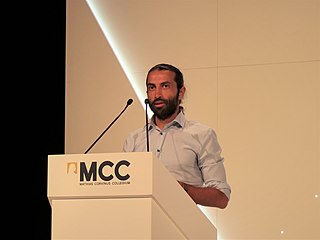A Quote by Eugene Ionesco
Every work of art (unless it is a psuedo-intellectualist work, a work already comprised in some ideology that it merely illustrates, as with Brecht) is outside ideology, is not reducible to ideology. Ideology circumscribes without penetrating it. The absence of ideology in a work does not mean an absence of ideas; on the contrary it fertilizes them.
Related Quotes
Whatseems to take place outside ideology (to be precise, in the street), in reality takes place in ideology. What really takes place in ideology seems therefore to take place outside it. That is why those who are in ideology believe themselves by definition outside ideology: one of the effects of ideology is the practical denegation of the ideological character of ideology by ideology: ideology never says, 'I am ideological.'
Since the 1960s, we have seen the failure of the melting pot ideology. This ideology suggested that different historical, cultural and socioeconomic backgrounds could be subordinated to a larger ideology or social amalgam which is "America." This concept obviously did not work, because paradoxically America encourages a politics of contestation.
I'm not trying to convert the entire nation of Israel and the entire nation of Palestine to Christianity. But at least if you can educate them about the ideology of love, the ideology of forgiveness, the ideology of grace. Those principles are great regardless, but we can't deny they came from Christianity as well.




































